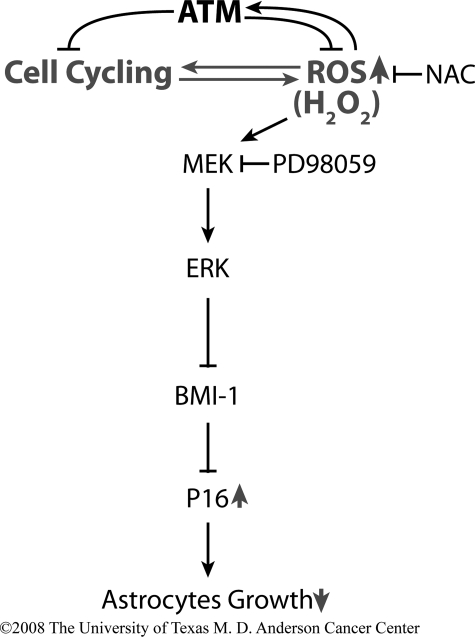FIGURE 7.
Proposed model of a role for ATM in the maintenance of normal astrocyte proliferation. ATM is necessary to control intracellular levels of ROS. In the absence of ATM, elevated levels of ROS elicit oxidative stress and limited growth of astrocytes, through multiple ERK1/2-dependent mechanisms, including down-regulation and chromatin dissociation of Bmi-1, as well as up-regulation of p16Ink4a. Abnormal proliferation of Atm-/- astrocytes may lead to oxidative stress in entire central nervous system and eventually to neurodegeneration. Oxidative stress-mediated growth defects of Atm-/-astrocytes may be prevented by antioxidants, and normal astrocyte proliferation may be partially restored by inhibition of ERK1/2 signaling. The arrows denote an increase or decrease when ATM is absent.

